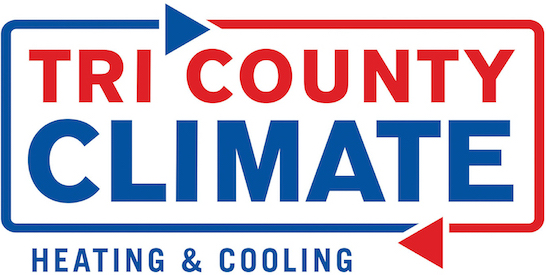Purchasing your first home is thrilling. You’re likely trying to keep track of a dozen things or more to ensure you’re making the right choice. We believe that understanding your future HVAC system is crucial. The property’s HVAC system represents a substantial investment and potential source of long-term costs, so being thorough should be a top priority for first-time homebuyers.
In the following guide, we’ll outline seven tips for discovering all there is to know about a home’s heating and cooling setup. And if you want a more in-depth opinion from the experts, don’t hesitate to contact Tri County Climate Control LLC. Our staff can weigh in on your options with industry insights you won’t find elsewhere.
1. What HVAC System Are You Working With?
Start by determining what type of HVAC system the home includes. Furnaces tend to last longer compared to air conditioners, and relatively new types of HVAC equipment like heat pumps feature average life spans longer than ever. Getting the details on the make and specific model provides a much better sense of how much maintenance it will require.
2. What Is the Current System’s Age?
It’s just as smart to learn how old the HVAC system is when you’re considering a potential new home. On average, HVAC systems tend to run for about 10-12 years. Learning its approximate installation date helps you plan for possible repair needs or considerations if it might shut down for good. Older systems are more prone to problems, so planning ahead of time for a replacement unit might be needed faster than expected.
3. Is the Warranty Active?
Be sure to check the HVAC system is still under warranty. If it is, that’s great news because it can lighten the load for maintenance expenses. HVAC warranties should take care of parts and labor, but the details in each policy will vary. Make sure you go over any terms that aren’t familiar to ensure you understand your coverage and any possible out-of-pocket costs.
4. Has the System Ever Been Professionally Serviced or Maintained?
Take a close look at the maintenance history of the HVAC system, if such information is accessible. This kind of information can demonstrate if there have been regular problems or how much upkeep was provided. Inquire about key tasks such as changing the air filter, which is a positive sign indicating regularly scheduled tune-ups.
5. Do You Know Its Energy Efficiency Ratings?
Purchasing a home with a heating and cooling system with strong energy efficiency means more manageable utility bills and less of an impact on the environment. Look for the seasonal energy efficiency ratio (SEER) ratings for air conditioning as well as the annual fuel utilization efficiency (AFUE) for furnaces. Higher SEER ratings mean better cooling across the entire season, while high AFUE ratings mean the fuel is more effectively burned for useable heat.
6. Can You Spot Trouble During Your Inspection?
Even without experience in HVAC systems, you should still examine the HVAC system on your own. Look for any concerning items that haven’t been mentioned by the seller. This can mean bizarre noises, stubborn patches of the house that are too hot or cold and attempts at concealing any serious damage.
7. Have You Sought Out Expert Advice?
If you’re not quite sure about the current state of the HVAC system, it’s wise to get a professional opinion from trained HVAC professionals. They are skilled at identifying things you might miss, such as leaks in the refrigerant, damage to the wiring or damaged ductwork.
A Call with Tri County Climate Control LLC Helps Take the Stress Out of Your Home-Buying Journey
Choosing your first home ought to be exciting, and Tri County Climate Control LLC can ensure yours is too. Connect with us at 541-238-2797. We can go over the details about how our HVAC services give you peace of mind, giving you what you need to make an offer with confidence.

